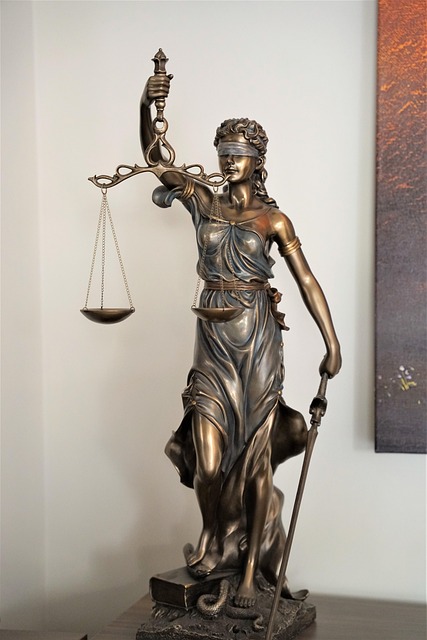Public corruption charges demand a profound grasp of the "Understanding Burden of Proof in Criminal Cases." Prosecution must prove guilt "beyond a reasonable doubt" through compelling evidence, including financial records, witness testimonies, and expert opinions. Defense strategies involve challenging admissibility, credibility, and interpretation of evidence, with skilled attorneys navigating complexities to ensure fair trials and potential charge dismissals. Understanding this legal threshold is paramount for favorable outcomes in public corruption and white-collar crime cases.
“Public Corruption Charges: Navigating a Complex Web of Legal Implications
This comprehensive guide delves into the intricate world of public corruption accusations, offering insights into their definition and far-reaching legal consequences. We explore the pivotal role of evidence and testimony in shaping these cases, with a particular focus on the crucial concept of the Understanding Burden of Proof in Criminal Cases. By examining strategic defenses and the challenges they present, this article arms readers with knowledge to navigate these complex allegations.”
- What are Public Corruption Charges?
- Definition and Legal Implications
- The Role of Evidence and Testimony
- Understanding the Burden of Proof in Criminal Cases
- Challenges and Strategies in Defense Against Corruption Accusations
What are Public Corruption Charges?

Public Corruption Charges refer to legal accusations against individuals holding public office or positions of power who are alleged to have misused their authority for personal gain. These charges encompass a wide range of illicit activities, including bribery, embezzlement, fraud, and abuse of public resources. Understanding the burden of proof in criminal cases is crucial when navigating these complex allegations. The prosecution must present compelling evidence beyond a reasonable doubt to secure a conviction.
In the context of public corruption, where white-collar and economic crimes are prevalent across the country, the process involves meticulous investigation and strict adherence to legal protocols. A complete dismissal of all charges can only be achieved if the defense successfully challenges the admissibility of evidence or demonstrates that the accused’s actions did not constitute a criminal offense under the relevant laws.
Definition and Legal Implications

Public corruption charges refer to illicit acts by individuals in positions of power or influence within government or philanthropic organizations for personal gain. This includes bribery, fraud, abuse of office, and other forms of misuse of public resources. The legal implications are severe, often leading to criminal prosecution and significant penalties, including fines and imprisonment.
Understanding the burden of proof in criminal cases is crucial, especially when addressing public corruption. Prosecutors must present compelling evidence at all stages of the investigative and enforcement process to secure convictions. This involves thorough investigations, expert analysis, and, in many jurisdictions, a high standard of proof beyond a reasonable doubt. The integrity of jury trials and the trust of the public in democratic institutions depend on ensuring that those accused of corruption face fair and transparent proceedings, ultimately upholding the rule of law within philanthropic and political communities.
The Role of Evidence and Testimony

In public corruption cases, the role of evidence and testimony is paramount as it forms the backbone of the prosecution’s case against accused individuals or entities. Understanding the burden of proof in criminal cases is crucial here. The prosecution must present compelling evidence that goes beyond reasonable doubt to secure a conviction. This includes financial records, communication logs, witness statements, and expert opinions, among others. Testimony from reliable sources, such as former colleagues or business associates, can provide critical insights into suspicious activities, enhancing the overall case strength.
The presentation of robust evidence and credible testimony is instrumental in navigating complex legal landscapes, especially in white-collar defense strategies. A complete dismissal of all charges is possible if the defense can successfully challenge the admissibility of evidence or undermine the credibility of testimonies. Therefore, a thorough understanding of both the primary and secondary aspects of legal proof is essential for achieving favorable outcomes in public corruption cases involving respective business dealings.
Understanding the Burden of Proof in Criminal Cases

In criminal cases, particularly those involving public corruption charges, one of the most significant aspects is the understanding of the burden of proof. This refers to the legal requirement for prosecutors to present compelling evidence that establishes guilt beyond a reasonable doubt. In the context of white collar and economic crimes, where sophisticated schemes and complex financial transactions are often at play, meeting this burden can be intricate. The onus is on the prosecution to prove every element of the crime, ensuring that any doubts about the defendant’s involvement or the validity of evidence are resolved in favor of the accused.
A strong white collar defense strategy often hinges on challenging the presentation and interpretation of evidence. Skilled defense attorneys scrutinize witness testimonies, financial records, and other crucial pieces of information to raise reasonable doubts. Their goal is not to prove innocence but rather to demonstrate that the prosecution’s case is not irrefutable. An attorney with an unprecedented track record in handling such cases understands the nuances of burden of proof and employs strategic tactics to protect their client’s rights and ensure a fair trial.
Challenges and Strategies in Defense Against Corruption Accusations

Facing public corruption charges can be a complex and daunting task for anyone involved. The defense strategy must address the unique challenges posed by such cases, where the prosecution bears a significant burden to prove guilt beyond a reasonable doubt. Understanding this burden of proof is crucial in navigating the legal landscape and building a compelling defense.
One key approach in defending against corruption accusations is to challenge the integrity of evidence and testimonies. This involves thorough investigation, expert analysis, and cross-examination to uncover any weaknesses or inconsistencies. Additionally, presenting a positive character defense can sway public perception and judicial decisions, especially within philanthropic and political communities. By employing robust legal arguments and strategic maneuvers, a winning challenging defense verdict is within reach, potentially leading to the complete dismissal of all charges.
Public corruption charges carry significant legal weight, demanding a thorough understanding of both the definition and the intricate processes involved. From evidence collection to the burden of proof, each aspect plays a crucial role in determining the outcome. By grasping these complexities, individuals can better navigate the challenges of defense strategies, ensuring fairness within the criminal justice system. This knowledge is essential for not only combating corruption but also for maintaining public trust in our legal framework.






